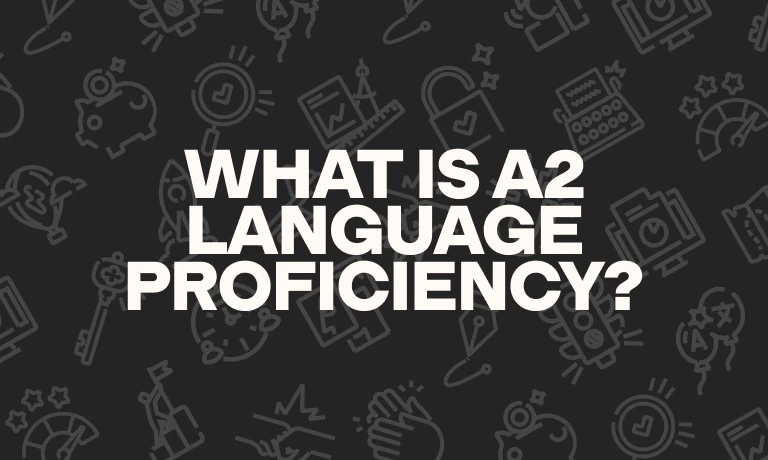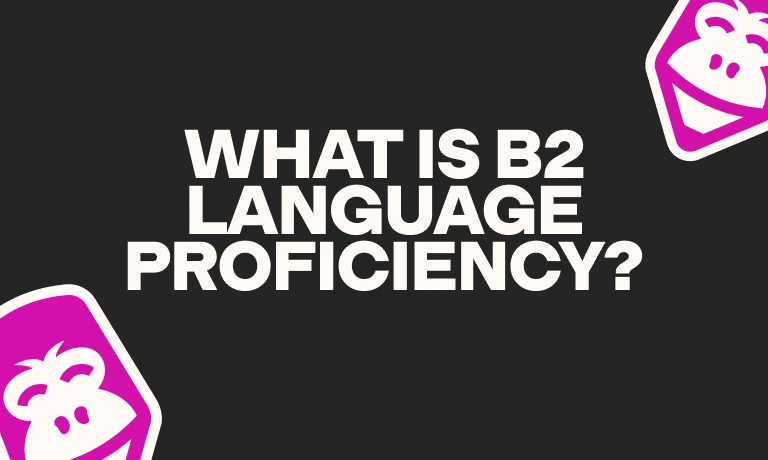30 sales engineer interview questions to uncover top talent
A sales engineer is a professional who sells complex technological products or services, usually in the B2B sector.
The skill set of B2B salespeople and sales engineers should include:
Deep technical knowledge of the product or solution they sell
A strong understanding of clients’ specific needs and wants
Expert negotiation and communication skills
Hiring the best talent requires using a mix of pre-employment skills tests and carefully curated sales engineer interview questions. After all, you’re not just hiring a sales rep for retail, you’re hiring an expert in your domain with excellent sales skills and a proven track record.
To make your hiring process easier, in this article, we’ve compiled a list of the best interview questions you can ask applicants, along with skills tests you can use to identify your best talent.
How to evaluate sales engineers’ skills
A good sales engineer will possess excellent technical and analytical skills, along with top communication and negotiation abilities.
To objectively assess applicants’ skills prior to interviewing them (and thus avoid wasting time with those who simply aren’t qualified for the role), we recommend using pre-employment skills testing in your hiring process.
With skills tests, you shorten your hiring time, save resources, and shortlist truly outstanding candidates. Some of the tests we recommend you use are:
Sales Management (B2B): Evaluate candidates’ expertise in sales strategy, enablement, incentives, and territory management.
Outside Sales (B2B): Assess candidates’ ability to qualify and manage leads, overcome objections, and close deals successfully in a B2B environment.
Communication: Find out who in your talent pool has the necessary communication skills for the role of a sales engineer.
Negotiation: Identify strong negotiators who can strike deals in your best interest.
Tests for CRM software like Salesforce CRM, HubSpot CRM, or Zoho CRM: Make sure applicants can hit the ground running and are proficient in the tools you use.
Once you go through the evaluation process, it’s time for your interviews. Combining skills tests with the right interview questions will help you to:
Streamline your hiring process
Make better hiring decisions
Gain insights into your candidates’ behavior and see what makes them tick
Use the questions we’ve listed in the next section for a seamless interview process.
Top 20 sales engineer interview questions and answers
Below, you’ll find our selection of the best 20 interview questions you can ask sales engineers to assess their skills, along with our guidelines on what to look for in their answers.
1. Describe your experience in technical sales and how you have contributed to your team's success.
Look for candidates who outline specific achievements in sales and who are able to explain their contribution to targets and their role in team success.
Skilled applicants will mention how they leveraged their technical knowledge to understand customer needs and provide tailored solutions. They might also talk about mentoring junior team members, putting best practices in writing, or collaborating with other business units to enhance overall team performance.
The best candidates will provide concrete examples of their contributions, such as increasing sales by a certain percentage or helping launch a new product successfully.
2. How do you assess a potential client's technical requirements and match them with your products?
Candidates should demonstrate a methodical approach to understanding client needs. Expect them to mention that they perform a thorough requirements assessment by asking detailed questions, listening attentively, and taking detailed notes.
Then, they should be able to explain how they match these needs with their product offerings by aligning features and benefits to clients’ pain points. Skilled candidates will also mention how they use case studies or demos to illustrate the product's value and ensure a good fit.
3. Explain how you handle objections from customers who have more experience in the domain than you do.
Engaging with customers who are experts in the field is challenging but also an essential part of the job of any sales engineer.
Candidates should outline how they prepare for meetings and explain how they address concerns with well-researched and accurate information.
They should always aim to be precise in their descriptions of the product and not overstate its capabilities; a willingness to work with other departments to customize the product is always a plus and will impress customers who have a deep expertise in the domain.
4. Have you ever had a situation where you had to collaborate with the product team to customize a solution for a customer? How did you handle it and what was the outcome?
You can use this question to follow up on the previous one, if the candidate mentions this approach. Candidates should be ready to collaborate with other teams and emphasize their role as the link between the customer and the product team.
Look for stories that show an ability to translate technical requirements into actionable product customization requests. Skilled applicants’ replies will show their communication competence and project management skills and should also feature specific information about outcomes.
5. How do you strike the right balance between technical accuracy and persuasiveness in your sales presentations?
Precision and clarity are just as important in technical sales as is persuasiveness.
Expect the best candidates to explain that they ensure technical accuracy by:
Checking product updates
Consulting with development teams
Using the product themselves
Persuasiveness, on the other hand, can be achieved with the help of:
Active listening
Identifying potential customers’ actual pain points
Providing enough examples and using storytelling to make conversations more engaging
Using case studies and other sales materials strategically
6. Can you tell us about an instance where you had to negotiate technical details in a sales contract?
Skilled sales engineers will possess strong technical knowledge and expert negotiation skills.
They should describe situations where they had to clarify technical specifications, warranties, or maintenance terms in a contract, or even request custom modifications based on the customer’s needs.
Look for examples where they worked closely with legal and development teams to ensure that they were able to meet the client’s needs while maintaining the accuracy of the contract and updating its terms if necessary.
Use TestGorilla’s Negotiation test to evaluate candidates’ ability to understand clients’ needs and close deals.
7. What strategies do you use to maintain relationships with key decision-makers in client organizations?
Any experienced sales engineer will know that building trust and demonstrating value continuously are essential to maintaining strong customer relationships – and also that relationship selling is a successful strategy for fostering customer loyalty.
Look for answers that mention how candidates:
Check in with decision-makers regularly
Seek to anticipate client needs and address them proactively
Provide timely information about product updates or new features
Share relevant industry knowledge and insights
Ask for feedback and take action on it
8. How do you manage and prioritize your sales pipeline?
Expect candidates to describe a structured approach to pipeline management. They should talk about using CRM tools to track opportunities and set priorities based on deal size, closing probability, and strategic importance.
Skilled candidates will also discuss how they allocate their time and resources efficiently, focusing on high-potential leads while also nurturing longer-term relationships.
9. Describe how you've contributed to the development of sales materials, such as datasheets or whitepapers.
Expect candidates to give specific examples of instances where they participated in the creation of sales materials, possibly in collaboration with the marketing team.
They might explain how they helped make sure sales materials are not only informative but also engaging and persuasive. Or, they might also talk about collecting and incorporating customer testimonials or helping write persuasive case studies and success stories.
The best applicants will also mention how they measure the impact of these materials on sales and how they improve them continuously based on results.
10. How do you approach upselling or cross-selling in a technical sales environment?
Look for sales engineers who aren’t simply looking to upsell a product at all costs, potentially eroding customers’ trust, but who demonstrate a customer-first approach to sales.
They should explain how they identify opportunities based on a deep understanding of the customer's business and technical environment. Skilled candidates might also mention analyzing each specific use case to suggest relevant add-ons or upgrades that genuinely add value, rather than just pushing for a sale.
11. What role do you think social media plays in technical sales?
Social media is a powerful tool that can be very helpful in building brand awareness and generating leads. Expect candidates to mention how platforms can be used to share value-packed content to engage potential customers.
Effective applicants will also discuss the role of social media in positioning themselves and other team members as thought leaders and building a name for themselves within their industry, which can indirectly support the sales process.
12. Describe your experience with CRM software. What tools have you used? How do you use them in your sales process?
Candidates should discuss their experience with specific CRM platforms, such as Salesforce, HubSpot, or Microsoft Dynamics, and explain how they integrate these tools into their workflows to track leads, manage customer interactions, and analyze sales data.
If you need applicants to have experience with specific CRM tools, you can use our Salesforce CRM, HubSpot CRM, or Zoho CRM tests to assess their proficiency.
13. Describe a time when you lost a sale. What did you learn from the experience?
Look for candidates who approach this question with honesty and self-reflection. They should share specific examples, focusing on what went wrong and how they analyzed the situation afterward.
The best responses will include insights gained from the loss, such as recognizing the importance of qualifying leads better, honing their product knowledge, or improving their follow-up strategies. The best candidates will describe how they applied these lessons to future sales efforts to avoid similar outcomes.
14. How do you evaluate the success of a sales presentation?
Candidates should discuss both quantitative and qualitative metrics for assessing a presentation's effectiveness:
Quantitative measures might include the number of follow-up inquiries, meetings scheduled, or deals closed as a direct result of the presentation.
Qualitative measures might include feedback from the audience, their engagement level during the presentation, and whether they managed to deliver key messages.
Skilled candidates will also talk about self-evaluation and explain they always review their performance to identify areas for improvement.
15. What methods do you use to gather information on competitors?
Expect candidates to discuss a multifaceted approach to collecting business intelligence, including:
Performing online research
Attending industry events
Monitoring social media and forums where competitors are active
Signing up to competitors’ webinars or sales calls
They should talk about analyzing competitors' marketing materials, product offerings, and customer reviews to identify strengths and weaknesses. Effective applicants will also mention staying updated on industry news to anticipate competitor moves and adapt their sales strategy accordingly.
16. How do you maintain your knowledge about products that you do not frequently sell?
Strong candidates will show a commitment to continuous learning. Expect them to mention how they use downtime to review product materials, participate in webinars, and stay engaged with product managers to keep their knowledge fresh.
Experienced sales engineers will also understand the importance of knowing the full product portfolio of their organization to identify cross-selling and upselling opportunities.
17. How do you build trust with a client during the sales process?
Candidates should emphasize the importance of transparency, honesty, and reliability in the sales process. Expect them to mention key strategies such as maintaining clear communication, setting realistic expectations, and always delivering on their promises.
Strong applicants will also understand the role of deep product knowledge, assessing the client’s needs accurately, and providing the right solutions in order to establish credibility and build a trusting relationship.
18. How would you handle a situation where a client is technically misinformed about your product?
Candidates’ approach to addressing misinformation should be respectful and educational and aim to provide enough details and context to the client rather than simply correct them. They might talk about identifying the source of the misunderstanding first and then providing clear, factual information to address it.
Sales engineers will also know how to use demos, data sheets, and third-party assessments to support their explanations.
19. Describe a time when you were underprepared for a technical question in a sales meeting. How did you recover?
Expect candidates to share an experience that shows their ability to handle unexpected situations gracefully.
They should describe acknowledging the gap in their knowledge, committing to finding the answer, and then following up promptly with the right information. This is a sign of high emotional intelligence and shows they’re able to leave their ego at the door rather than aim to simply avoid or minimize the situation.
20. Describe a time when you disagreed with your manager on your strategy. How did you handle it?
Answers to this question will help you figure out whether candidates are able to engage in constructive disagreement. Expect them to explain how they presented their case with supporting data and a clear rationale for their strategy. They might also discuss the importance of open communication and a willingness to listen to feedback.
The best candidates will give you an example in which they reached a compromise that was in the best interest of the organization, rather than simply convincing their manager to go along with their proposal (or not engaging in a discussion).
The best insights on HR and recruitment, delivered to your inbox.
Biweekly updates. No spam. Unsubscribe any time.
10 additional sales engineer interview questions you can ask
Below, you’ll find some additional questions you can ask sales engineers during the interview process:
How do you prepare for a sales meeting with a highly technical audience?
Can you discuss a time when you had to sell a product that was new to the market?
Describe a time when you had to adapt your sales approach based on market changes.
How do you ensure compliance with industry regulations in your sales process?
Can you share an example of how you've handled a challenging technical support issue during the sales process?
How would you approach a scenario where the product development team cannot meet the custom requirements of a high-value client?
Can you share an experience where you had to negotiate a deal under significant price pressure from competitors?
How would you handle a scenario where a product you are selling is about to be discontinued or significantly updated?
Describe a time when you had to use a competitor's weakness to your advantage.
How do you ensure ongoing client engagement after the initial sale is made?
Looking for more questions? Check out our 100+ B2B sales interview questions.
Need to hire a sales engineer? TestGorilla will help you do it
A sales engineer is a professional who combines their expert technical knowledge of a product with a deep understanding of the customer’s needs. They use both to bridge the gap between what a customer wants and the product they can provide them with.
When looking to hire your sales engineer, the best approach is to use a mix of skills tests and interview questions to find talented candidates.
Use TestGorilla’s skills assessments to evaluate applicants – and the above questions to gain a deeper understanding of their expertise and skills.
Sign up for a free plan to start using TestGorilla today – or request a demo to see how our skills tests can help you hire a sales engineer in no time.
Related posts
You've scrolled this far
Why not try TestGorilla for free, and see what happens when you put skills first.














